Related Work
This page lists a variety of existing projects I found in correlation to my Bachelors Disposition.
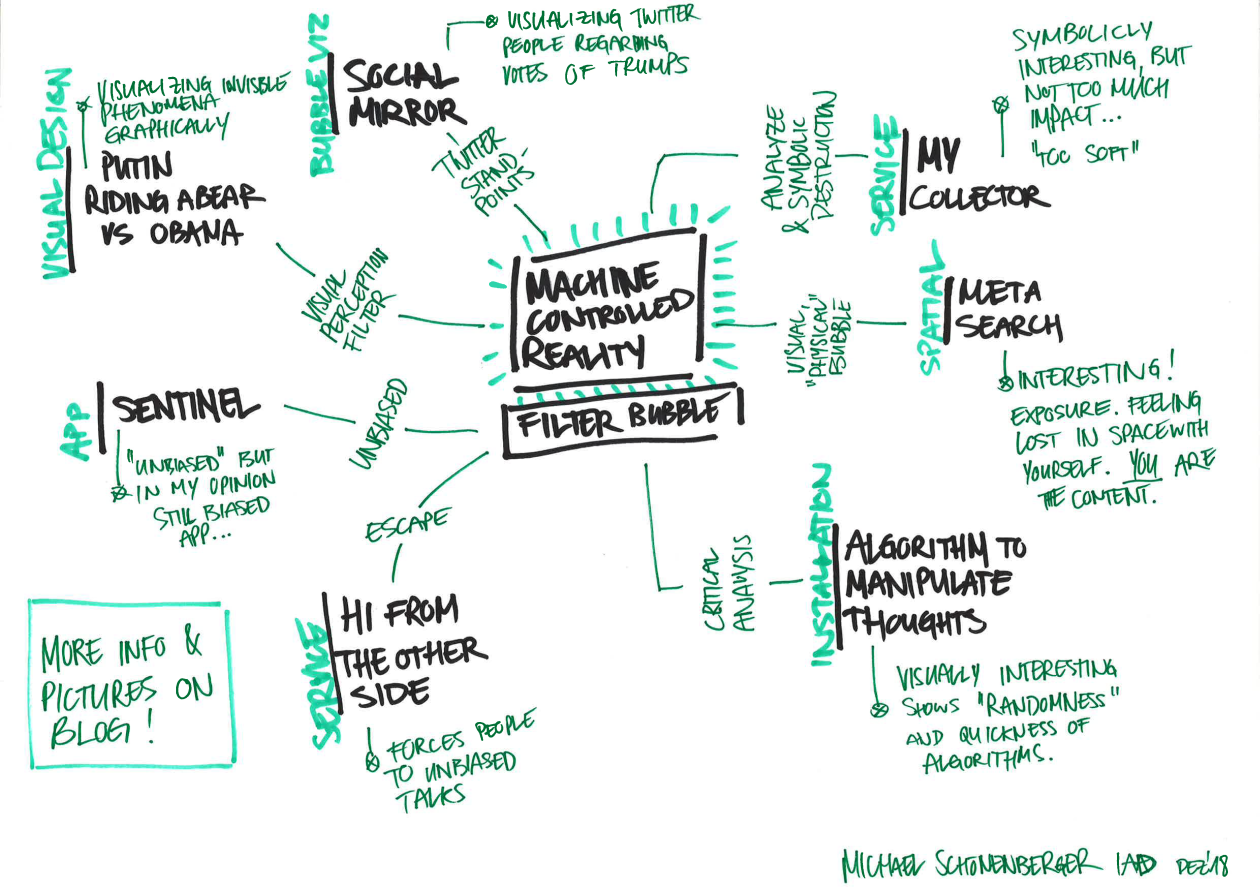
"Putin", "riding a bear", "Vs Obama"
The following visual experiment is an attempt to make more tangible an internet phenomena that is present on our daily life but that we can hardly see, the filter bubble.
https://www.behance.net/gallery/48178987/Putin-riding-a-bear-Vs-Obama

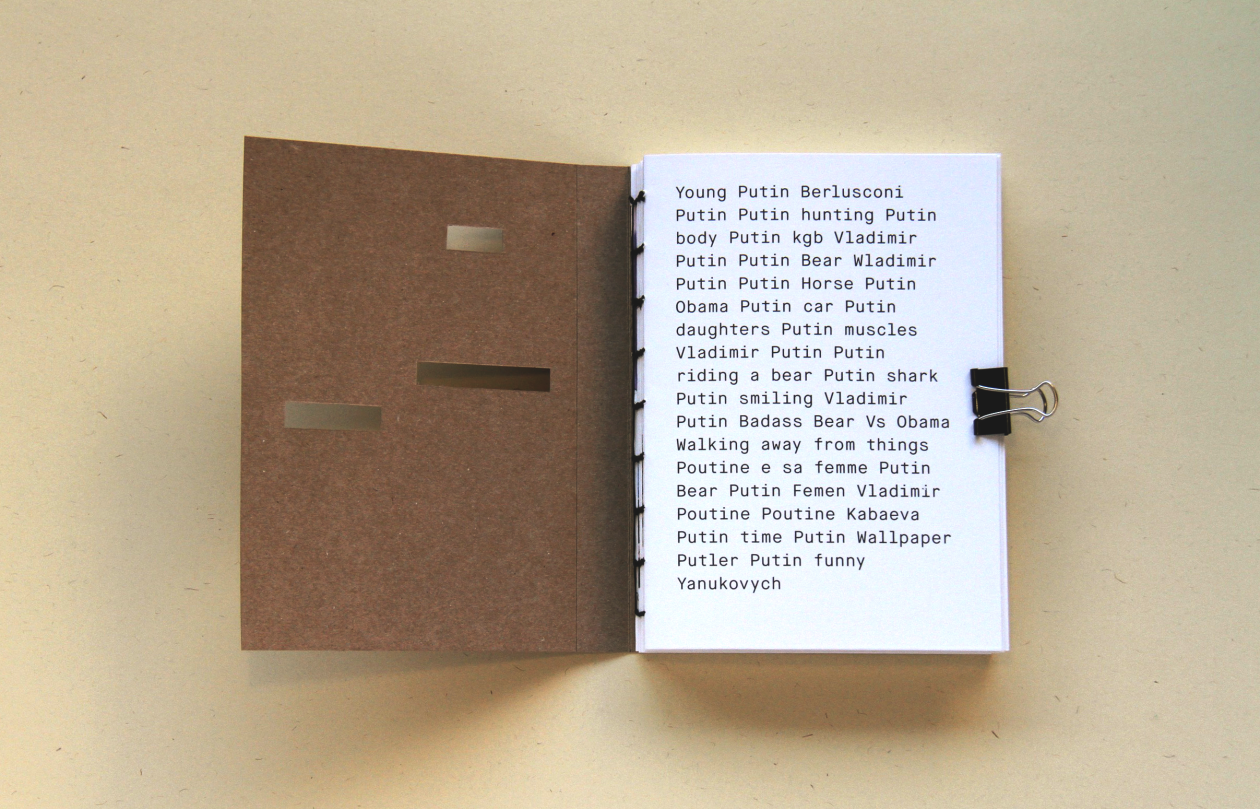
My Collector
'My collector' is based on the Filter Bubble. Every time we go online google gathers data about us, this way Google is personalizing our web. It means algorithms show us what we are supposed to see. All the information we consume is based on our previous searches. With this project the idea was to make people aware of this invisible filter.
https://www.behance.net/gallery/38437735/My-Collector

Meta Search
Can we break away from our digital filter bubbles and implement more chance and randomness into our lives online?
Meta Search is a critical research project that challenges the limitations of the ‘filter bubble’ by creating a new interactive and mindful context to search the Internet. This work is part of a yearlong research into our perception of online existence.
The installation is set up as a public experiment, designed as a confession booth. The visitor is invited to enter the space where they will be surrounded by hundreds of reflections of themselves. Inside they can perform a voice-enabled search using Google. The effect the designed surrounding has on the self and the mind will have an effect on the type of question you would like to ask inside. The aim is to intervene in the sometimes-mindless way we ask Google questions and how we take Google’s answer for granted.
lisamandemaker.com/meta-search
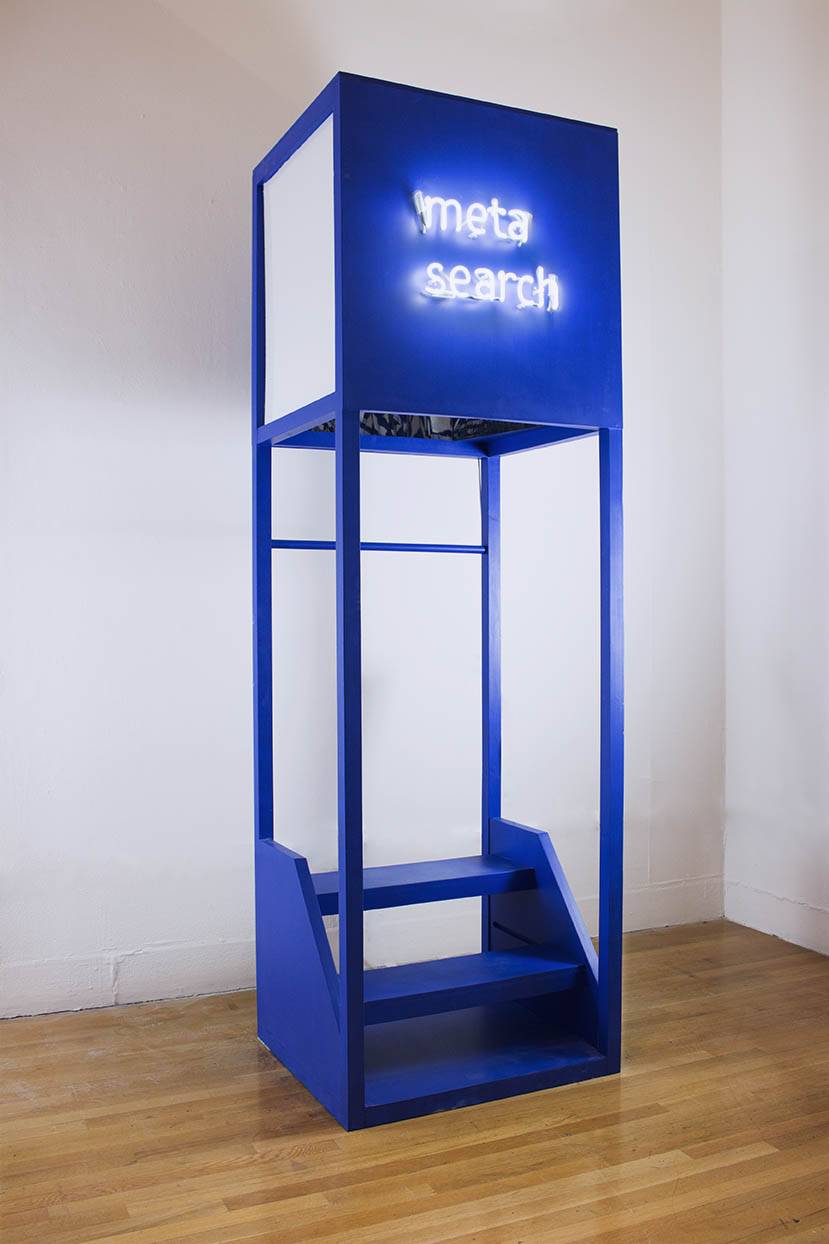
The Filter Bubble: Algorithm to Manipulate Thoughts
Web algorithms of Google and Facebook select information that users want by filtering it based on user's information. This might seem convenient, but it effectively traps people into cultural and idealogical bubble, eventually creating a biased person. People call such phenomenon 'the Filter Bubble'.
This project initiated from the question how designers can solve social problems. The artificial intelligence algorithm, called ‘Algorithm to Manipulate Thoughts’, created a hypothetical conspiracy plan that manipulates human thoughts into the 'Filter Bubble’. The purpose is to raise awareness about the danger of ‘Filter Bubble'.
behance.net/gallery/60479533/The-Filter-Bubble-Algorithm-to-Manipulate-Thoughts
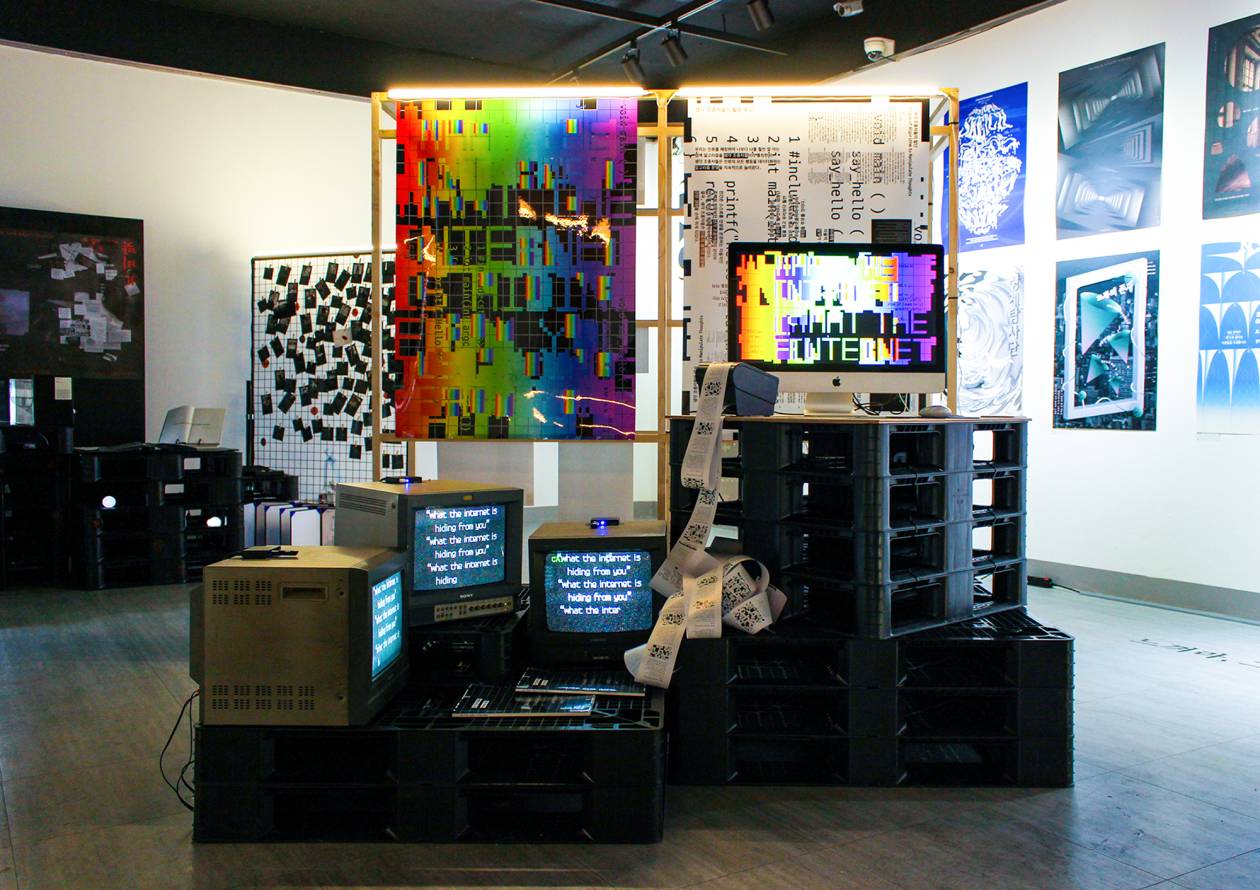
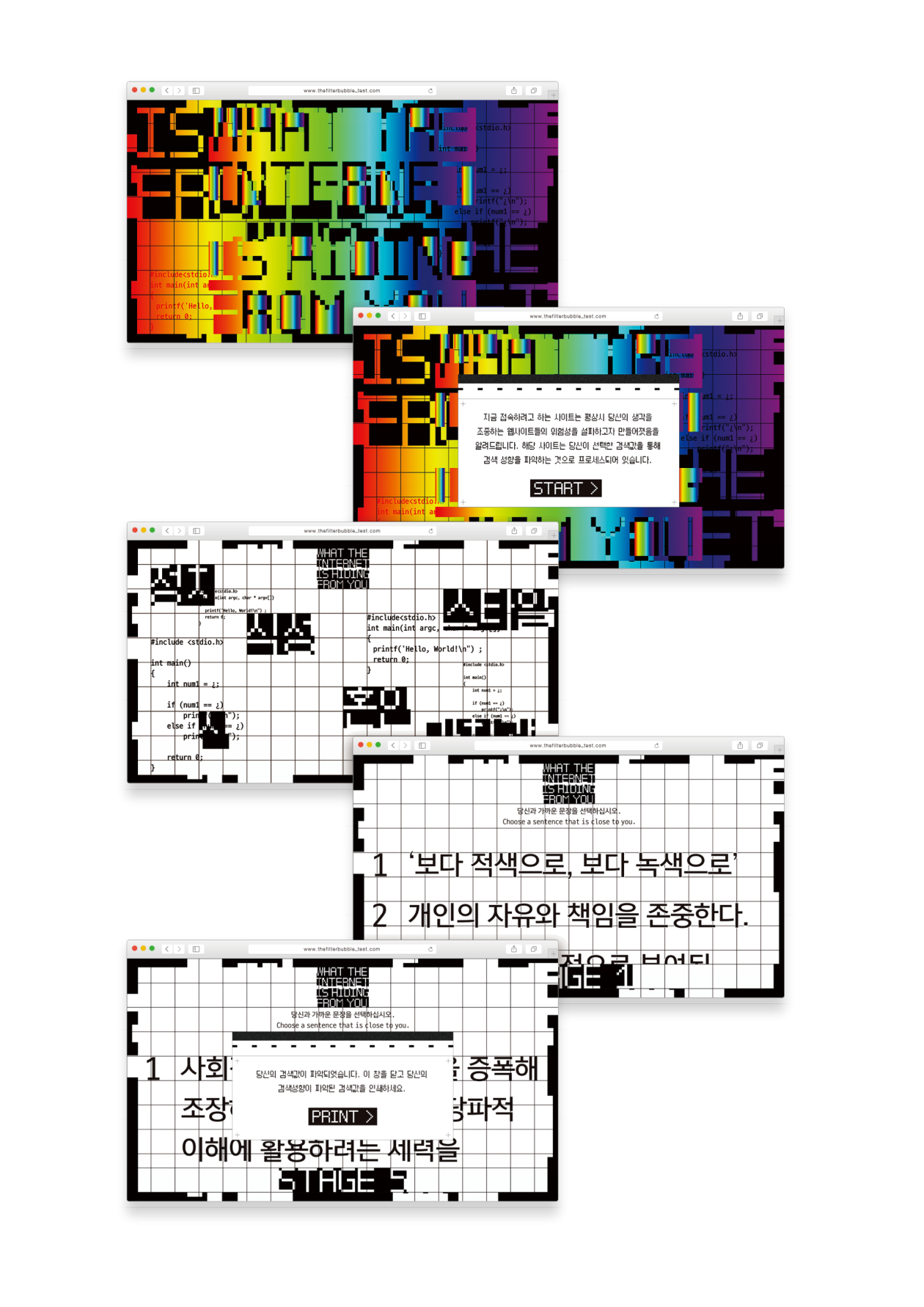
Sentinel
App Interface for Unbiased News: Sentinel.
behance.net/gallery/71237465/App-Interface-for-Unbiased-News-Sentinel
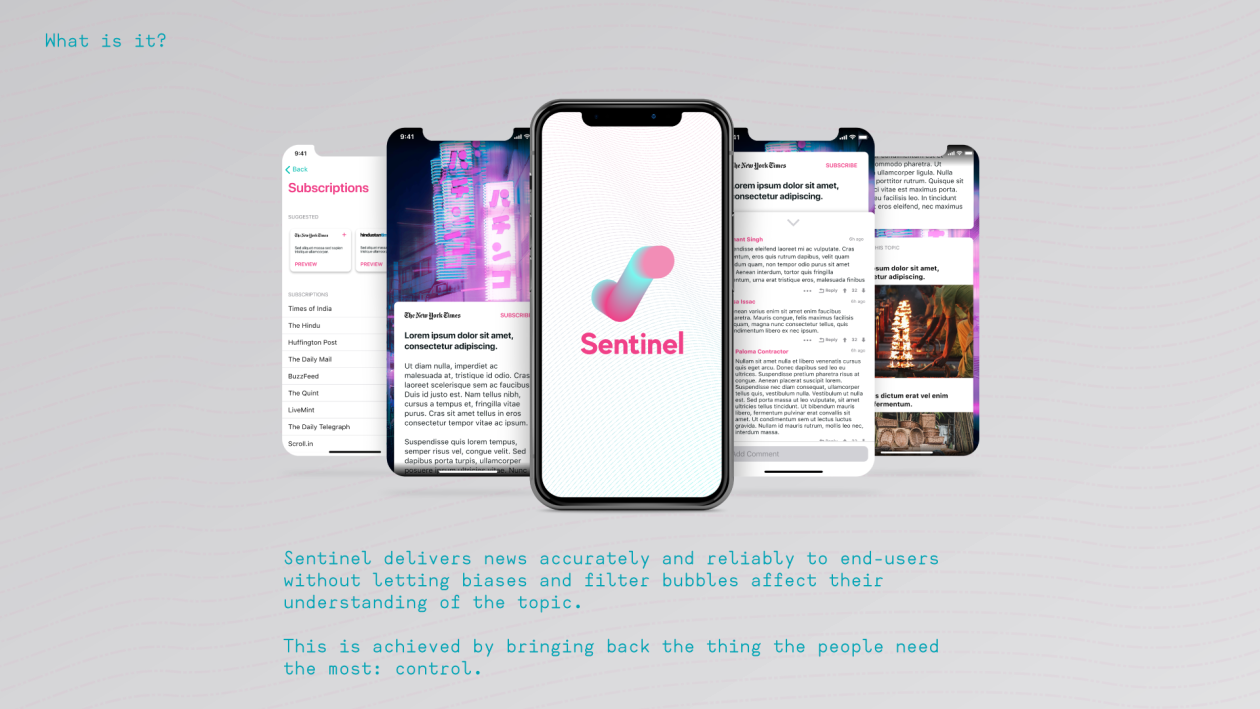
Hi from the other side
Tsai, on the other hand, bypassed the media and aimed to get people talking, one on one. He partnered with MIT computer science student Yasyf Mohamedali to create Hi From the Other Side, a service that matches up people with opposite political stances for friendly chats, either online or in person.
ibm.com/blogs/insights-on-business/ibmix/popping-filter-bubble-machine-learning
Social Mirror
Social Mirror is a web application that helps Twitter users interactively explore the politically active parts of their social network. Worsening political polarization over the past several years has exacerbated ideological echo chambers, which in turn have further fueled polarization by widening knowledge and empathy gaps between disparate groups. We hope digital tools like Social Mirror can help inspire self-reflection, and ultimately, intellectual humility by providing people with a new view of their social media ecosystems and helping them form new network connections.
media.mit.edu/projects/social-media-mirror/overview
New New New
The following projects have been added during the BA Concept seminar week.
The New Newsroom: Lost (and found?) in the information stream
Every day, we eat up, share and generate stories through news apps, podcasts, Twitter, youtube, facebook updates and even VR. Yet, it seems that the more intimate we get with the creation of information, the less grip we have on its meaning and on the impact its manipulation has on politics and society. The exhibition The New Newsroom. Reporting Redesigned at MU in Eindhoven, explores how we can use the power of digital technology to create meaningful content and regain control of information.
we-make-money-not-art.com/the-new-newsroom-lost-and-found-in-the-information-stream
The Uncensored Playlist
China, Vietnam, Uzbekistan, Thailand and Egypt are some of the countries at the bottom of the list for freedom of press. The Uncensored Playlist is the result of a collaboration between Reporters Without Borders Germany and local journalists and musicians to by-pass censorship. They turned censored news stories into songs with innocuous titles that can then be streamed for free via music apps.
Using music as a loophole, the platform aims to get the work of exiled journalists across the border, into people’s playlists. Just like other pop songs, the music spreads through word of mouth, turning news stories into hits.
Go Rando
One of the pieces premiering at arebyte is Go Rando, a brand new browser extension by Ben Grosser that allows you to muddle your feelings every time you “like” a photo, link or status on Facebook. Go Rando will randomly pick up one of the six Facebook “reactions”, leaving thus your feelings and the way you are perceived by your contacts at the mercy of a seemingly absurd plug-in.
bengrosser.com/projects/go-rando
BA Research Phase
Cybernetic Serendipity
Cybernetic Serendipity was an exhibition of cybernetic art curated by Jasia Reichardt, shown at the Institute of Contemporary Arts, London in 1968 and then touring the United States.
en.wikipedia.org/wiki/Cybernetic_Serendipity
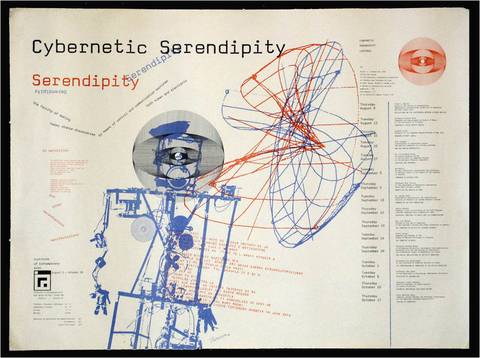
medienkunstnetz.de/ausstellungen/serendipity
en.wikipedia.org/wiki/Cybernetic_Serendipity
WMD #1: Evaluation system for teachers
Cathy O'Neil describes a mathematical program which evaluates the competence of teachers. Due to a lack of input data (only mathematical data is applicable), this algorithm acts very rationally. Meaning that only numeric data such as grades can easily be processed. Human properties are therefore ignored, which creates this biased system.
insidebigdata.com/2017/11/14/book-review-weapons-math-destruction-cathy-oneil